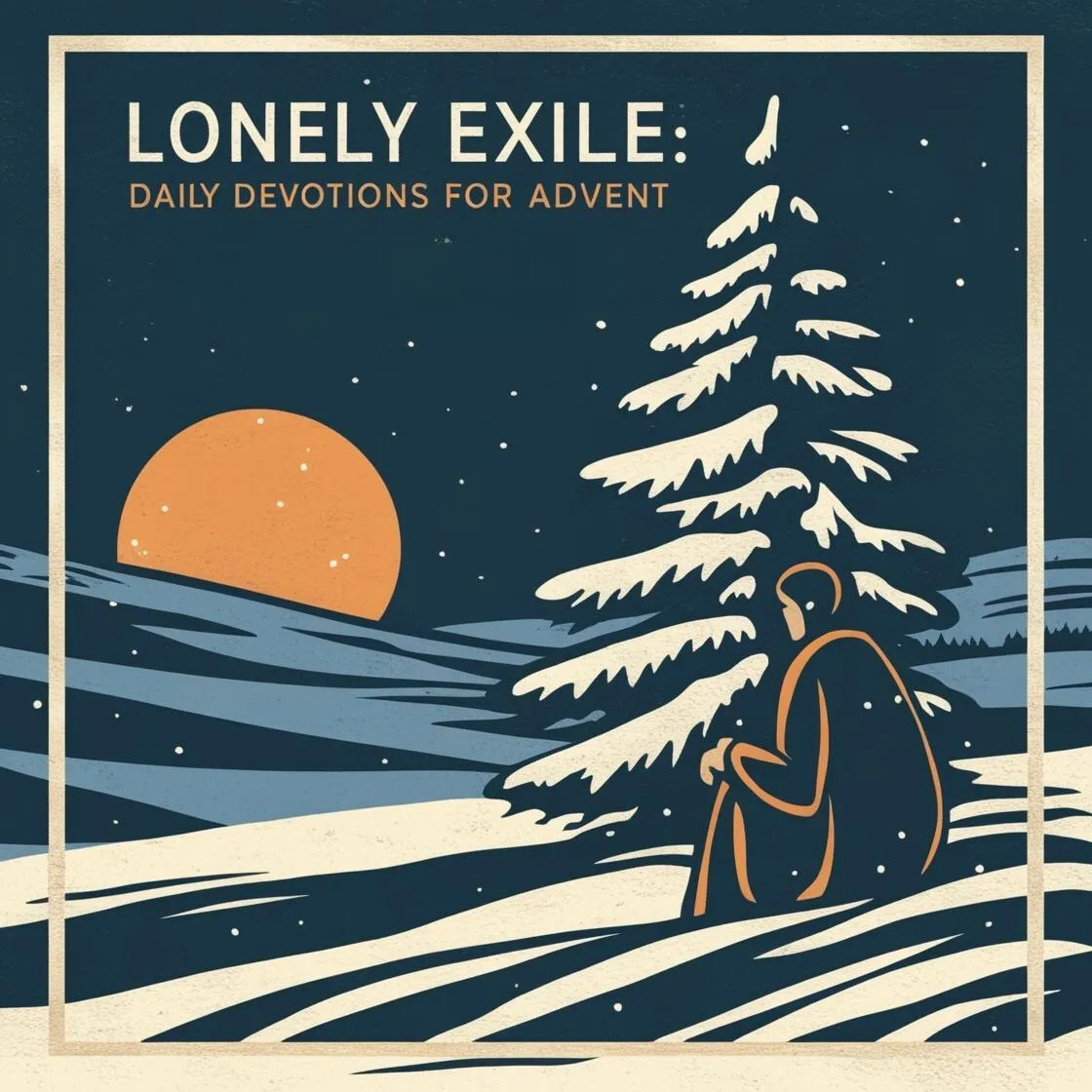Lonely Exile: A Daily Advent Devotional
Part Two: Advent and the End of the World
“We must accept finite disappointment, but never lose infinite hope.”
- Martin Luther King, Jr.
READ: Luke 21:20-28
If you read the suggested text above you might be scratching your head right about now. Why in the world would I suggest a text that is often seen to be a prediction of the “end times / end of the world” during a season like Advent? The reason is simple: This passage in Luke, and the parallel texts in Matthew and Mark, are the Gospel readings for the first Sunday of Advent. Depending on the Church Year, it is one of these texts that begin our journey toward Christmas.1 My hunch is the follow up question is something like, “Okay, but why a would a text like this begin the Advent season?”
Contrary to the standard (mis)interpretation, Jesus was not predicting the end of the world, but more like the end of the world as his listeners knew it. Jesus understood his time to be a pivotal moment for the future of Israel. The world as they knew it would soon end, and their job was to cultivate a new age, a new world. The question to be debated in his time was exactly how that new world would be born. Would it come through violence—taking up arms and militarily defeating the Romans? Or, and this is where Jesus landed, would it come through creating alternative communities that embodied the values of that future age—justice, compassion, peacemaking, joy, inclusion—essentially, in a word, love. The two visions were in stark contrast, and diametrical opposition.
I do not think Jesus saw his world as fated to one of those options over the other. It was about what they, as a people, would choose to do. What future would they create together? Unfortunately, the path of violent rebellion ended up as the favored option. In the year 66 CE the the Judeans violently rebelled against Rome. In 70 CE Rome destroyed the Holy City, Jerusalem, and razed the Temple. The last gasps of the rebellion were finally snuffed out in the year 73 CE. This was the worst case scenario that Jesus described in this text, not one that Jesus wanted or that God willed.
If anything, this text at the beginning of Advent should remind us that our choices, how we decide to show up in the world, how we love or don’t love our neighbor and our enemy, are decisions we must make, not decisions that God controls. We have the freedom—and more than that, the responsibility—to choose how we will seek to bring about a new age, a new world.
Advent places us at the same crossroads that Jesus and his fellow Judeans faced in the first century of this common era. While the world has changed in massive ways in the last two thousand years (airplanes and iPhones to name just a couple of the unfathomable-for-our-ancestors-ways-things-have-changed 🤯) , in some ways the choices are really the same. There are two central questions, then and now:
What kind of world do we imagine?
How will we try to bring that world from our dreams into our reality?
Those questions are our responsibility while we live. Will we choose the well worn path of retribution and violence, doing unto them what they have done to us? Or will we choose the path that creates something greater, something beyond—real peace, real justice, and real wholeness for the world?
Like the visitations Scrooge experienced in Dickens’s A Christmas Carol, the dire warnings found in Luke 21 are not set-in-stone-divine-necessities, but they are real possibilities if we do not choose to live differently with one another. We can choose a different path forward. That is the hope Advent offers and calls us to embrace.
Reflection Question:
What does it mean, practically, for us to choose the path of love in a world that feels as conflicted as ours?
What is something we can do today to bring that new world into existence?
The Lectionary is set-up in a three year cycle, with each year focused on one of the Synoptic Gospels (Matthew, Mark, and Luke). Readings from John are also used at different times of the year. The current, newly begun year is Year C and focuses on Luke. Next year (2025-2026) will be Year A, concentrated on Matthew, followed by Year B (2026-2027) centered on Mark. For more on the Lectionary check out Vanderbilt Divinity School’s page here.


